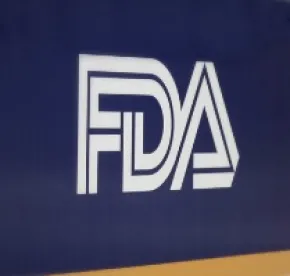In the wake of the COVID-19 pandemic in the United States, the U.S. Food and Drug Administration in March relaxed its labeling requirements for food manufacturers and restaurants to aid the distribution and sale of food during this pandemic. The temporary policies are set to stay in effect for the duration of the Department of Health and Human Services’ declaration of a public health emergency. Now that businesses are “reopening” it is important to remember that these temporary policies remain in effect.
Initially, the FDA released a temporary policy regarding nutrition labeling on packaged food. The policy was meant to provide flexibility to food manufacturers and restaurants who may have had certain inventory that was not packaged for direct-to-consumer sale. Food manufacturers have food products that are labeled for use in restaurants but not for retail distribution so the food product does not contain a nutrition facts label. Likewise, restaurants may have ingredients or other packaged foods in inventory that were not intended to be sold as-is to consumers. The temporary policy does not apply to foods prepared by restaurants. The temporary policy allows food manufacturers and restaurants to sell packaged food products directly to consumers without a nutrition facts label so long as the food does not have any nutrition claims and so long as the product is labeled with the following:
- a statement of identity;
- an ingredient statement;
- the name and place of business of the food manufacturer, packer, or distributor;
- net quantity of contents; and
- allergen information required by the Food Allergen Labeling and Consumer Protection Act.
To visit the FDA’s website to download the full temporary policy nutrition labeling during COVID-19, click here.
Although many businesses are “re-opening” HHS’ declaration of public emergency remains in effect and thus so does the temporary labeling policy. Due to capacity restrictions and lack of public confidence, food manufacturers and restaurants still face uncertainty regarding business volume. It is helpful to remember that excess production by manufacturers or excess inventory for restaurants can still be remedied by direct-to-consumer sales without the nutrition facts label.
In April, the FDA also relaxed labeling requirements specific to shell eggs sold by retail food establishments such as grocery stores. Due to the COVID-19 pandemic, there is an increased consumer demand for shell eggs while demand has decreased for shelled eggs distributed to places such as schools or restaurants. Suppliers of shelled eggs to consumers have enough eggs but do not have enough consumer packaging available to distribute them. Under the FDA’s guidance, retail food establishments can sell shelled eggs in unlabeled cartons or flats as long as the retail food establishment clearly displays a sign or tag of some sort with the following information:
• statement of identity;
• the name and place of business of the manufacturer, packer, or distributor; and
• safe handling instructions for shell eggs that have not been processed to destroy all viable Salmonella.
In addition to this sign or tag, it needs to be clear to the consumers which label applies to each suppliers’ eggs if the establishment sells eggs from multiple suppliers, the eggs must be sold in complete cartons or flats, and there are no nutrition claims for the shell eggs.
To visit the FDA’s website to download the full temporary policy regarding shell egg labeling during COVID-19, click here.
As with the temporary labeling policy on packaged food, the policy pertaining to the labeling of eggs also remains in effect during the pendency of HHS’ declaration of public emergency. Thus despite the re-opening of restaurants and other commercial users of eggs, suppliers may still sell their excess eggs to consumers through grocery stores pursuant to the limited labeling requirements.




 />i
/>i

